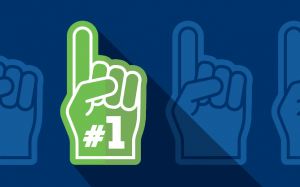Is your AOR taking into account constant cultural shifts when crafting your messaging?
Your brand might not need a true “culture agency” per se, but if your AORs aren’t addressing at least the basics of what a culture agency does, you might find your brand quickly approaching irrelevance. And working your way back into that “relevant” column is a catch-up game you don’t want to play. Let’s address what those basics are and why they matter.
Influencer and culture marketing are nothing new. From the sublime (Lucille Ball for Carling beer) to the ridiculous (Met Opera star Patrice Munsel for Camel cigarettes), what’s changed over the years have been the channels. So, when Taco Bell recently announced it had added a “culture agency” to its agency roster, some brands’ ears perked up while many agencies were nonplussed. Why?
Since the dawn of social media and the year you (and you and you) won Time’s Person of the Year Award, savvy agencies have been gradually pivoting from the tried—but not true—combo of print, OOH, broadcast, and digital to getting authentic brand messaging in front of targets naturally via social apps.
Then came influencers. In the early wild west days, brands were tripping over themselves to send products to early influencers (pop culture stars or people with high follower counts) in hopes of getting unofficial endorsements. Stakes were low, accountability slim, and proof that these channels were viable marketing resources was flimsy at best. But some good brand/influencer partnerships were started, and a juggernaut was rolling.
As influencers evolved, so did their handlers. Those unpaid endorsements dried up, except for influencers with less than 10,000 followers. Agencies specializing in representing influencers began serving as liaisons to wrangle and oversee the brand influencer relations and hopefully track great results; the first “culture agencies” were born.
Fast forward to today, where many influencer agencies have grown into true culture agencies. Others have evolved into platform and app producers. And if they haven’t evolved, they’re not thriving as they might have been when things were simpler.
But here’s where some of these influencer agencies and platforms come up short, and here’s where your AOR should be looking out for your brand: the cultural zeitgeist is morphing 24/7/365. Good agencies–cultural agencies in particular–are out in front of those cultural changes so brands can proactively take advantage of them rather than react and appear behind the curve. Many influencer agencies work in more of a vacuum: matching campaign objectives to appropriate influencers, with less attention paid to what’s happening outside those campaigns.
While it might seem that current culture plays a smaller role when it comes to a life science or pharma company vs a CPG or entertainment brand, consider your employer brand and your workforce. The talent acquisition market has never been as challenging as it currently is. That cultural zeitgeist doesn’t disappear once an employee walks in your door or logs on to a Zoom call. It’s infused in every aspect of your workforce. No matter how buttoned up your brand voice and tone might be, if you’re out of step with what potential recruits want, you’ll lose talent to competitors.
Culture agencies have the pulse on what’s popular—and what’s going to be popular—in a given demographic, but that’s only part of their purpose. Their true value lies in understanding what moves and inspires your target. This information is then incorporated into brand messaging to make it more relevant and effective—in both the digital world and the real world.
When it comes to employer brands, at BNO, we’re continually conducting field work for our clients. From in-depth interviews and primary research to persona creation, we keep our finger on the pulse to anticipate the cultural zeitgeist in different verticals to serve up relevant content that resonates with candidates. Our entrepreneurial spirit guides us through emerging and unexplored territory to familiarize ourselves with trending patterns before they hit the mainstream and others follow.
Culture agencies connect and can help you deepen the relationship between brand and intended audience. They help brands adapt and stay relevant by making sure that your brand has a seat at the table and is part of the conversation.
If you feel your brand—and especially your employer brand—is lacking in any of the above departments, let’s talk soon.





